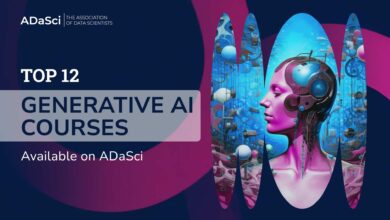The Bookseller – News – A third of translators report losing work to generative AI systems, SoA survey reveals

A survey of 787 members of the Society of Authors (SoA) has found that a third of translators and a quarter of illustrators have lost work to generative Artificial Intelligence (AI) systems. Translators are also more likely to use AI to support their work, with 37% of respondents saying they have done so, followed by 25% of non-fiction writers.
The research explores the experiences of those in creative careers with AI systems, and their views and concerns about the future impact on creative careers. The survey’s respondents include writers of fiction and non-fiction, scriptwriters and poets — both traditionally and self-published — as well as journalists, illustrators and translators.
Illustrators are the least likely to have used AI in their work, with only one in 10 reporting having made use of its systems, compared to a fifth of fiction writers and a quarter of non-fiction writers. Meanwhile, around three in 10 illustrators and writers say that they have used generative AI to brainstorm ideas, while 8% of translators — and an even smaller proportion of illustrators (5%) — report that the reason they have used AI in their work is because they were asked to by a publisher or commissioning organisation.
The responses also reveal that over a third of illustrator respondents and four in 10 translators have seen the income from their work decrease in value because of generative AI. Looking ahead, more than 80% of respondents say that they are concerned about AI output mimicking their style, and that the use of generative AI devalues human-made creative work.
Some are already experiencing problems linked to these systems, with a quarter of illustrators and over a third of translators reporting having lost work due to generative AI.
The survey also highlights the level of concern about the future impact of AI on creative work, with almost two-thirds of writers of fiction and over half of non-fiction writers saying that they believe generative AI will negatively impact their future income. This concern is even more prevalent among translators and illustrators, with almost three-quarters from both groups worried about their future income because of AI.
There is an almost unanimous consensus about the need for regulation of generative AI when it comes to copyright holders being consulted, credited and compensated — and a call for transparency with AI-generated content, both from respondents and the SoA.
Commenting on the findings, the SoA has said that there is “urgent need” for government regulation in terms of the development AI systems, and highlighted the need to uphold copyright laws and bolster enforcement. The body also called for developers to engage with the creative industries while developing models for remunerating authors.
“No one expects generative AI to be un-invented, and we all know its potential to be a powerful and useful tool,” said Nicola Solomon, the chair of the Creators’ Rights Alliance and the outgoing SoA chief executive. “But it is not too late to ensure that it is developed and used ethically, and within existing copyright frameworks. Once the world moves beyond the wow factor of each new system release, generative AI must remain a tool to support and enhance human-made creative work, not a cheap alternative to replace it.”
The society is holding its next extraordinary general meeting on 2nd May 2024, which will allow members to vote on whether they consent to the use of their works being used to develop generative AI systems. The meeting will also debate a proposed statement on Gaza, and ending fossil fuel investments in the book industry.



